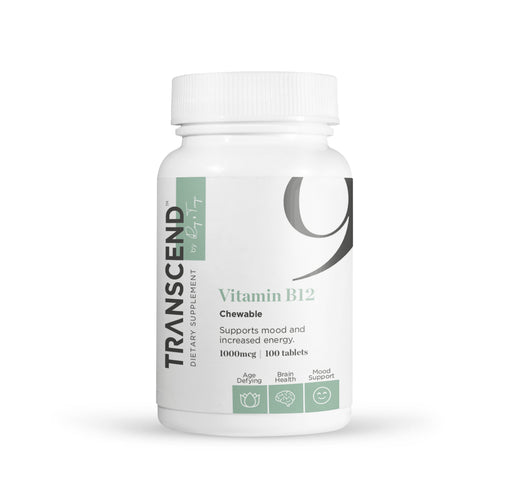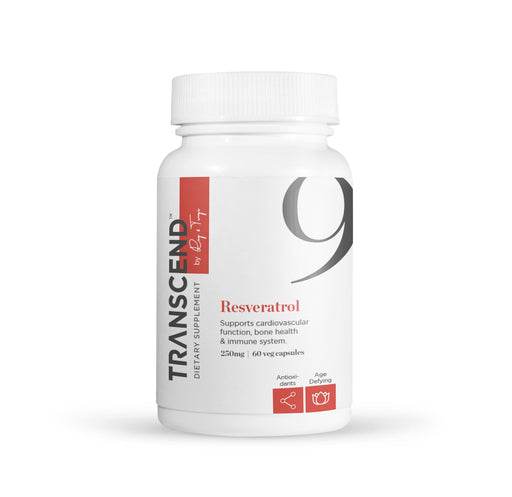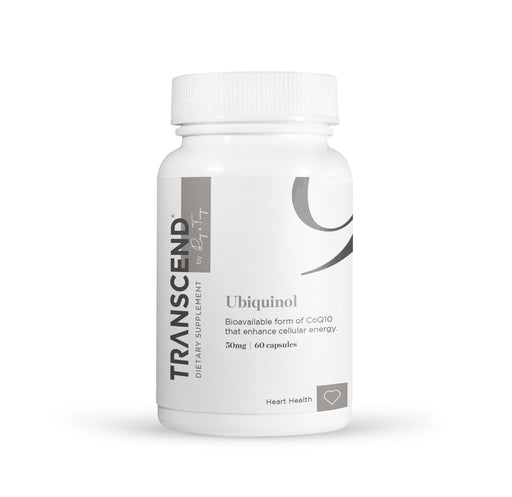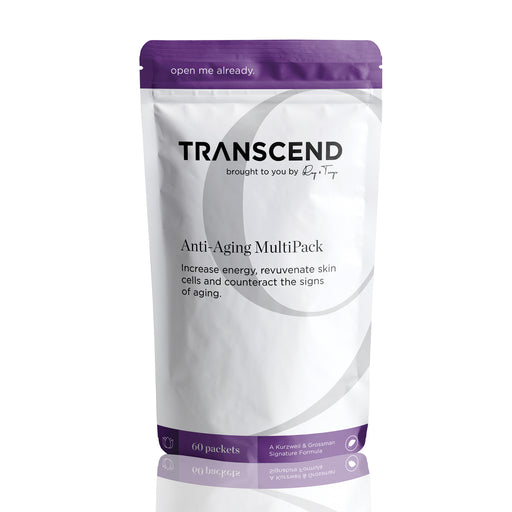
Vitamin B-12, Sublingual
Increased energy Improve mood Fight fatigue Common deficiency Better absorption Vitamin B12 (also called cobalamin) is one of eight water-solu...
View full details
Contrary to popular belief, prostate health should be a priority for men of all ages. While many prostate disorders tend to affect men in their 40s and older, the time to be proactive in supporting prostate health is now.
What is Benign Prostatic Hyperplasia?
Prostate enlargement is an inevitable part of the male aging process, and is particularly common in men over the age of 50. Benign Prostatic Hyperplasia (BPH) occurs when the cells of the prostate gland begin to multiply, causing the gland to swell. The exact cause of BPH is unknown, but researchers have suggested that age-related changes in male sex hormones may be a contributing factor to prostate enlargement. A family history of prostate abnormalities may also increase the risk of BPH-related health issues.
TRANSCEND Step 1: Talk to Your Doctor
Symptoms associated with BPH are often mild at first, but can become more serious if not promptly addressed. Scheduling regular check-ups and assessments with your physician are critical in supporting optimal prostate health and preventing serious complications from BPH before they occur.
Common symptoms of BPH include:
If you are experiencing any of these symptoms, talk to your doctor. There are several treatments that will alleviate the discomfort and inconvenience of these symptoms. Early treatment of BPH symptoms can help to prevent more serious complications in the future.
5 Tips for Keeping Your Prostate Healthy:
1. Focus on proper nutrition and staying hydrated
Proper nutrition is your first line of defense against prostate disease. Maximize your intake of fruits and vegetables, limit your consumption of “bad fats” (or avoid them entirely), and choose plant-based proteins over red meat. This can help reduce your risk of BPH-related health issues.
Staying hydrated is also important for maintaining prostate health. Drink plenty of water and avoid sugary beverages to help flush out toxins in the urinary tract that can lead to prostatitis and inflammation.
2. Manage stress
While not a direct cause of prostate disease, high levels of stress have been shown to weaken immunity and alter hormonal balance. Routine stress management exercises will help to keep your brain and body functioning optimally.
TRANSCEND Step 9: Detoxification
4. Manage hormone balanceTRANSCEND Step 5: Supplementation
Saw Palmetto is a small shrub native to the southeastern United States. Its berries have been used by Native American Indians for centuries to maintain healthy urinary function. When taken as a supplement, saw palmetto helps to block the enzymes responsible for converting testosterone into DHT. TRANSCEND’s Prostate Support formula combines this powerful ingredient with other vitamins, herbs and minerals that work together to support optimal prostate health.
Read the TRANSCEND Research Review on Vitamins + Prostate Health
The “C Word”: When Prostate Enlargement is No Longer Benign
According to the American Cancer Society, prostate cancer is the second most common cancer affecting men in the United States, with skin cancer being the first. Around one in nine men will be diagnosed with prostate cancer during his lifetime, with 60% of new cases occurring in men over the age of 65.
Even though prostate cancer is a serious disease, most men diagnosed with prostate cancer will not die from it. There is no way to completely prevent prostate cancer, but taking a proactive approach to prostate health can significantly reduce your risk.
Prostate Cancer FAQs
Interestingly, the number of reported prostate cancer cases for Japanese and Chinese men is significantly lower than in other populations. Some researchers have suggested that this may have something to do with the amount of green tea these men consume.
Green tea is rich in polyphenols and has strong antioxidant properties. TRANSCEND®’s Green Tea Extract contains a concentrated combination of Green Tea and ECGC (epigallocatechin-3-gallate). Together, these can support healthy immune systems and T-Cell activity in lymph nodes.
A Proactive Approach to Prostate Health
All men, regardless of age, should consider prostate health a top priority for a longer, healthier life. Being proactive about prostate health will not only work to alleviate BPH-related symptoms—it will also help reduce your chances of developing more serious conditions in the future.

Increased energy Improve mood Fight fatigue Common deficiency Better absorption Vitamin B12 (also called cobalamin) is one of eight water-solu...
View full details
Combat internal aging Protect cells from radiation damage Increase antioxidant capacity Take with lecithin for better absorption Optimal dose for...
View full details
2022 update: Future batches of this product will use a Ubiquinol product that is a greenish capsule rather than a red softgel Bioavailable form o...
View full details
A Kurzweil + Grossman Formula Continued Synergy between Science and Convenience Convenient dosage packets Top anti-aging products Increase energy...
View full details
Leave a comment